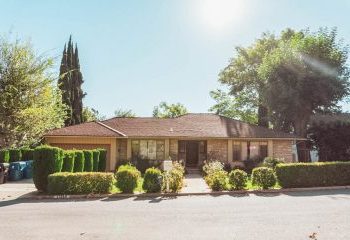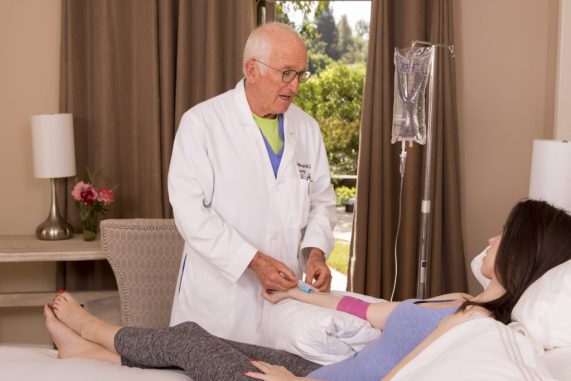Novo Detox is a treatment center with a detox and inpatient rehab facility that is fully accredited by The Joint Commission, the California Department of Health Care Services, and the Substance Abuse and Mental Health Services Administration (SAMHSA).
We are the best detox and rehab center for addiction for Sacramento, California residents because we have a full staff of caring and empathetic, dedicated experts available to our patients 24 hours a day, 365 days a year. Our drug and alcohol detox and rehabilitation programs have a high recovery rating, with our patients avoiding the ping-pong effect.
Our Gallery
Why patients choose detox & rehab programs at Novo?
Focus on safety & comfort
24/7 supervised detox
Top Rated facility
Effective treatment
Healthy meals
Quick admissions
Evidence-based Therapy
Great locations Nationwide
- Rehab Near Me: Best Detox & Rehab Center For Addiction in Sacramento
- Highest Rated Alcohol Detox Program
- Drug Detox Program
- Top Alcohol Rehab in Sacramento
- Drug Rehab in Sacramento
- How Much Does Rehab Cost in Sacramento?
- How Long Is Detox?
- How Long Is Rehab?
- 30 Day Short Term Rehab
- Long-Term Rehab
- Additional Therapies & Addiction Treatments Available
- Does My Insurance Have Coverage For Rehab?
- MAT
- Cognitive Behavioral Therapy
- Dialectical Behavioral Therapy (DBT)
- Rational Emotive Behavioral Therapy (REBT)
- Dual Diagnosis Treatment
- EMDR
- Relapse Prevention
- Life Skills Training
- Vocational Training
- Group Therapy
- Experiential Therapy
- One-on-One Therapy
- Family Therapy
- Trauma Informed Therapy
- Physical Fitness
- Off-Site Activities
- 12-Step Rehab in Sacramento
- Anxiety Disorder
- Bipolar Disorder
- Borderline Personality Disorder
- Codependency
- Depression
- Impulse Control Disorder
- Post-Traumatic Stress Disorder
- Why Choose Novo Detox?
- Recovery Friendly Things to Do in Sacramento
- City Neighborhoods We Serve
Rehab Near Me: Best Detox & Rehab Center For Addiction in Sacramento
Locating drug or alcohol treatment in California is the first step toward managing a substance abuse problem. Novo Detox attracts clients from all across the Sacramento, California area with our residential treatment, outpatient programs, and detox programs. Today, more than 22 million people in the U.S. are living with substance use disorders. These conditions are chronic and likely to worsen without professional treatment at a quality rehab facility. Drug and alcohol addiction can be managed successfully. By enrolling in recovery programs, you can end your dependence on alcohol or drugs and get the support you need to improve your life and health.
If you’re searching for an addiction treatment center near Sacramento, CA, consider Novo Detox. As a leading California rehab, we offer multiple treatment approaches that address each aspect of substance alcohol and drug addiction. Addiction is a complex condition that tends to impact each aspect of a person’s life. It impacts physical health, mental health, relationships with loved ones, finances, jobs, and a person’s overall well-being. At our drug and alcohol rehab, you can get help managing your substance abuse issue. We also offer dual diagnosis treatments for clients with co-occurring disorders such as depression or bipolar disorder. With our support, you can achieve lasting recovery.

Highest Rated Alcohol Detox Program
Novo Detox is renowned for its caring support and expertise. We offer alcohol detox programs in our medically assisted environment. Medical detox can be challenging because of withdrawal symptoms, but our detox center offers treatments and medications that can dramatically reduce these uncomfortable symptoms, helping clients rest and begin to heal. Alcohol detox is often the first step in recovery as it targets the individual’s physical dependence. If you’ve already gone through withdrawal, you may simply begin your treatment program with other addiction treatments that target addiction’s mental and behavioral elements.
Drug Detox Program
For many clients, drug detox is the first stage of addiction recovery. Novo Detox offers supportive drug detox treatment. It’s crucial to undergo detox and withdrawal in a medically assisted setting. Some withdrawal symptoms can become so severe that they could trigger a medical emergency such as dehydration, seizures, heart irregularities, or even suicidal thoughts. During medical detox, clinicians prescribe medications to reduce or eliminate these symptoms so that clients can detox safely and more comfortably. Detox usually lasts between 7-10 days. Once completed, clients can begin the next phase of their treatment program.
Top Alcohol Rehab in Sacramento
Novo Detox offers top-tier alcohol treatment designed to help clients understand what led them to abuse alcohol and how to stop drinking for good. Alcohol addiction treatments at Novo Detox provide clients with helpful strategies for managing their triggers to drink. After completing detox treatment, clients can begin their alcohol treatment plan that includes many treatment approaches, including life skills training, relapse prevention, cognitive behavioral therapy, mindfulness, anger management, and more. Whether you’re enrolled in residential treatment or outpatient programs, you can end your alcohol dependence and achieve lasting sobriety with our support.
Drug Rehab in Sacramento
As a leading drug treatment center our Sacramento drug rehab provides multiple levels of care to support clients who are suffering from a prescription drug or illicit drug addiction. We rely on medically sanctioned addiction treatments as well as alternative and holistic therapies that, combined, address each aspect of addiction. We believe strongly in individualizing each treatment plan to ensure each client’s treatment needs are met. We offer inpatient rehab programs, outpatient treatment, and virtual outpatient therapy. You’ll find it at our drug treatment center no matter what level of support you need.
How Much Does Rehab Cost in Sacramento?
The cost of addiction treatment programs varies depending on the treatment facility and the program type. Since inpatient treatment involves residential care and meals, it is more expensive than outpatient programs. Typically, the number of services clients need informs the cost of their treatment. Today, rehab centers in Sacramento and Los Angeles, California accept many different insurance plans, and insurance providers are legally required to provide some level of coverage for mental health and substance abuse treatment. When you enroll in treatment at Novo Detox, we can discuss the costs of your individualized treatment plan.
How Long Is Detox?
Medical detox programs usually last a week–7-10 days. Some people, particularly those who haven’t been addicted for long, may complete detox more quickly. Withdrawal symptoms tend to peak between 24 and 72 hours from the last use of the addictive substance. After that point, clients gradually begin to feel better. However, some withdrawal symptoms may persist for weeks or even months. It’s not uncommon for someone with an opioid addiction to experience cravings for the drug for weeks or months later. That’s why we offer medication-assisted treatment and other treatments designed to alleviate long-term withdrawal symptoms.
How Long Is Rehab?
A person’s time in formal treatment varies from one client to another. Many clients transition from one rehab program like inpatient treatment to an outpatient treatment like partial hospitalization or intensive outpatient treatment. Others feel confident in managing their addiction after completing a 30-day treatment program. At Novo Detox, we strongly focus on individual treatment; clients who need more support can obtain it. It’s important to note that research studies have shown that the longer someone spends in rehab treatment, the less likely they are to suffer a drug or alcohol addiction relapse.
30 Day Short Term Rehab
Usually, the minimum time a person spends in recovery programs is 30 days. Someone who has abused drugs and alcohol for a short period of time may not require a longer-term treatment program. However, someone who has abused drugs and alcohol for years may need longer in therapy than a 30-day program affords. However, each person is different when it comes to their treatment needs. That’s why we offer flexible, individual treatment programs and options. Other rehab centers in Sacramento may have more rigid programming. We find that it helps clients to be able to transition from a highly supportive program to a less intensive program after their initial month of treatment.
Long-Term Rehab
It’s common for many clients to need more treatment than just 30 days. We feature 60-90 days treatment programs that provide clients with the extended support they need to achieve their recovery goals. A person who has been dependent on alcohol and drugs for years needs time and support to learn how to undo unhealthy patterns of living and coping. Also, someone with a dual diagnosis may also need to spend a long time in rehab to get the full support they need to successfully manage both of their conditions.
Additional Therapies & Addiction Treatments Available
Our rehab center for Sacramento residents features many types of addiction treatments. Not only do we provide traditional, evidence-based addiction treatments, but we also offer holistic therapies and alternative treatments that are known to substantially support the recovery process. Together, all of these different forms of treatment provide robust support for clients, whether they are enrolled in inpatient rehab plans or outpatient programs. Our well-balanced support and quality treatment help clients achieve successful treatment outcomes.
Does My Insurance Have Coverage For Rehab?
Medical insurance carriers are now obligated by law to offer some level of coverage for mental health and substance abuse treatment. The amount of coverage depends on the carrier and the specific coverage plan. When you contact Novo Detox to discuss our detox residential treatment or outpatient programs, we can verify insurance and discuss your policy’s coverage. We have streamlined the insurance verification and enrollment process to help clients begin their treatment plans as quickly as possible. If you have questions about your insurance coverage, our insurance specialists can help.
MAT
Medication-assisted treatment (MAT) helps support clients with various forms of substance addiction, including alcohol addiction and opioid addiction. During MAT, clinicians prescribe medications that can reduce the powerful cravings clients experience during the detox process and even after. Many clients ask about methadone detox for heroin addiction. Methadone can reduce cravings and withdrawal symptoms. Today, there are even more effective medication-assisted treatments that have fewer safety concerns. If you are a candidate for this form of treatment, doctors can discuss the different options, how they work, and if this type of treatment is ideal for you.
Cognitive Behavioral Therapy
Cognitive Behavioral Therapy CBT is an effective form of psychotherapy that’s widely used in substance abuse treatment. During CBT sessions, therapists help clients understand how their behaviors–especially their unhealthy behaviors–are connected to their thoughts and emotions. During sessions, clients will begin to identify negative emotions and thoughts contributing to their drinking or drug use. Then, they can develop strategies for managing them in healthier ways that support sober living.
Dialectical Behavioral Therapy (DBT)
Dialectical Behavioral Therapy is closely related to CBT. This form of therapy is designed to help clients tolerate distress better. Coping with stressful emotions and situations in healthy ways is essential to relapse prevention. For instance, being unable to cope with powerful negative emotions is a compelling trigger to use drugs and alcohol. Learning more effective ways to cope supports clients in their ability to ward off relapse.
Rational Emotive Behavioral Therapy (REBT)
Rational Emotive Behavioral Therapy is also in the family of CBT treatments. This therapy focuses closely on unhealthy thoughts and challenging them. Unhealthy thoughts can drive addiction. For instance, an unhealthy thought like “everything always turns out bad” is a thought that could be challenged. Therapists help clients challenge the thoughts that pave the way to unhealthy behaviors or negatively impact emotions. REBT sessions can help clients change negative thinking patterns so that their thoughts become more realistic, supporting positive coping.
Dual Diagnosis Treatment
About a third of people with a substance use disorder also have a cooccurring disorder–a mental health condition like anxiety, posttraumatic stress disorder, or depression. Novo Detox offers dual diagnosis treatments because the best way to treat cooccurring disorders is at the same time. Getting your mental and behavioral health on track can support your addiction recovery process. Dual diagnosis treatment centers like Novo Detox will help you cope with both of your conditions effectively. Too often, mental health and substance abuse problems occur together, so tackling them together allows clients to get a handle on both problems so that neither can negatively impact the other going forward.
EMDR
Eye movement desensitization and reprocessing are helpful in the treatment of trauma. Many clients have experienced unresolved past trauma. Unresolved trauma can significantly impact their alcohol and drug use and a cooccurring disorder if they have one. EMDR is a unique treatment that involves ‘moving’ where these past traumas are stored in the brain. By recalling memories under the guidance of a therapist and focusing on the therapist’s instructions, clients experience a shift that allows them to cope with their past trauma more effectively.
Relapse Prevention
Clients who enter rehab are at varying degrees of stability. Some people are more vulnerable to relapse, which is why our treatment facility features relapse prevention programming. In these sessions, we provide intensive support for identifying problematic situations and building strategies for coping so that relapse doesn’t occur. Many types of addictions are associated with high relapse rates owing to the highly addictive properties of the substance in question. For instance, meth and opioid addiction are associated with high relapse rates. A strong focus on relapse prevention can help many people keep their recovery process on track.
Life Skills Training
During life skills training, clients learn how to form healthy routines that support their sober living goals. Many people addicted to drugs and alcohol for a long period of time have gotten out of the practice of performing various tasks like cooking for themselves or waking up at a certain time each morning. Structures that include life skills can help clients build a strong recovery framework. Improved life skills help clients lead healthier lives, allowing them to more successfully keep relapse at bay.
Vocational Training
Many clients who’ve been addicted to drugs or alcohol have lost their job or stopped working. It can be challenging to get back to work. Vocational training helps clients revisit the job skills they need to obtain gainful employment. Some clients want to change career paths. Others may never have had job skill training before. With vocational training, clients can get some helpful support for their work goals.
Group Therapy
Group therapy is an important part of an addiction treatment program and is featured in inpatient and outpatient rehab programs. Clients will work with a therapist in a supportive setting during group therapy. Clients are asked to contribute to the group discussion or activity and support one another. Many clients find group therapy’s support to be a compelling part of their recovery plan. At Novo, we offer group therapy that’s associated with many different treatment paradigms, including relapse prevention, cognitive restructuring, denial management, distress tolerance skills, mindfulness, health and wellness, life skills, and more.
Experiential Therapy
The addiction recovery process can take many different forms. Experiential therapy supports recovery by non-traditional means. Rather than focusing on conventional talk therapy, experiential therapies promote healing by alternate means. For instance, therapies like art therapy, music therapy, yoga, and equine therapy are forms of experiential therapy. Clients find ways to express themselves and heal in ways that don’t focus exclusively on talking. Many people find that experiential therapy provides a great balance for more traditional treatment approaches like cognitive behavioral therapy.
One-on-One Therapy
One-on-one therapy with a highly trained addiction therapist or mental health professional allows clients to focus on personal issues and issues that are specific to their situation and circumstances. Individual therapy is a core treatment for substance abuse treatment and dual diagnosis treatments. It’s used in conjunction with various forms of treatment like cognitive behavioral therapy and rational emotive behavioral therapy. Working with a therapist helps clients work through many different aspects of their condition, allowing them to cope better and manage their conditions better going forward.
Family Therapy
Addiction takes a toll on a person’s loved ones too. That’s why many rehab and detox centers like ours include family therapy in their treatment programs for clients and families who want to attend. A family therapist works with each family member to help them cope with their loved one’s addiction. They learn how to provide healthy forms of support, and they get help repairing any issues that developed between them during their loved one’s alcohol or drug abuse problem. They learn to improve their communication and practice strategies that promote healing for all.
Trauma Informed Therapy
Having experienced or witnessed traumatic situations or events, clients can find the emotional aspects of these experiences difficult to contend with. For many, trauma led them to drink or abuse drugs. During trauma-informed therapy, clients can learn how to cope with their traumatic experiences more healthfully–in ways that aren’t self-destructive like drinking and drug use. Since trauma can be a powerful trigger for relapse, it must be confronted during addiction treatment. Therapists will help clients with strategies for managing their emotions in ways that support their continued recovery.
Physical Fitness
Physical fitness can support the addiction healing process. That’s why our recovery center offers fitness classes. When someone exercises, the body releases a flood of endorphins that promote both physical and mental healing. Physical fitness reduces stress levels, which can be an important strategy for managing triggers to abuse drugs and alcohol. The great thing about fitness is that anyone can improve their fitness well-being no matter how athletic they are. For many clients, physical fitness activities play an important role in their relapse prevention plan.
Off-Site Activities
The addiction specialists at Novo Detox organize various activities for clients that allow them to enjoy sober-friendly experiences. These experiences like hiking or attending a play can be therapeutic, providing healthy stress relief. Therapy sessions are crucial, but off-site activities provide an alternative therapeutic approach that can complement the recovery process.
12-Step Rehab in Sacramento
At our drug and alcohol rehab in Sacramento, we offer 12-step programming facilitation. Many people have found 12-step programs like Alcoholics Anonymous and Narcotics Anonymous to be helpful when battling an addiction. These programs can provide welcome ongoing support for people. After completing their rehab programs, clients have to maintain their continued recovery. Aftercare support like a 12-step program can help. At our rehab, we acquaint clients with these types of step programs so that they can rely on them during their long-term recovery process.
Anxiety Disorder
Anxiety disorder is characterized by persistent worry. People might experience panic attacks or debilitating fear. Sometimes anxiety involves symptoms of depression, especially when left untreated. It’s not uncommon for people with substance abuse problems to experience anxiety either as a separate condition they’re suffering from or as a symptom of their alcohol or drug abuse problem. For instance, certain drugs and their withdrawal symptoms can heighten feelings of anxiety. We’re able to treat anxiety disorder and its symptoms at our treatment center. Anxiety can often be managed effectively with medication and therapy.
Bipolar Disorder
Bipolar disorder is characterized by bouts of depression and manic energy periods. People with this mental health disorder can feel depressed for months. Then, when the manic phase begins, they may feel outgoing, social, and energized. It’s not uncommon for people to engage in high-risk behaviors during this phase. Treatment often involves therapy and medication management. It’s not uncommon for people with bipolar disorder to also struggle with drug and alcohol abuse problems. At our treatment center, we can treat clients who have been diagnosed with bipolar.
Borderline Personality Disorder
A person with borderline personality disorder may struggle with unhealthy thoughts and behaviors. Their patterns of behavior can impact their relationships, which are often unstable. People with this disorder find it difficult to manage their emotions and often experience mood swings. Like other mental health disorders, treatment and medication management can help.
Codependency
Codependent relationships are unhealthy and often found in relationships where addiction is present. Codependent relationships happen when one individual is excessively in need of support, and the other feels a strong need to be needed. This dynamic can result in unhealthy behaviors that actually enable continued drug or alcohol abuse. During therapy for codependency, therapists help clients identify problematic traits in themselves and their relationships. It takes time to ‘unlearn’ unhealthy behavior patterns, especially when they’re deeply ingrained, but it’s easier to do with the support of a trained therapist.
Depression
Depression affects millions of people around the country. One in five adults will experience major depression in their life. Some people turn to drugs and alcohol to soothe away symptoms of depression, which can lead to substance use disorders. Others develop depression as a side effect of their drug or alcohol use problem. At our treatment facility, we offer dual diagnosis treatment for clients who have depression. In some cases, medication management can help. Various types of therapy can also help clients manage their mental health conditions for improved symptom relief.
Impulse Control Disorder
When a person can’t control their impulses, they may be diagnosed with an impulse control disorder, many of which exist. Kleptomania, for instance, is a type of impulse control disorder. People who struggle with addiction and its compulsions may also have an underlying impulse control disorder that involves unhealthy behaviors. It’s important to manage both of these disorders to achieve recovery from both. Our rehab center features highly trained clinicians who provide quality care for mental health disorders and addiction treatments.
Post-Traumatic Stress Disorder
Post-traumatic stress disorder can cause many debilitating symptoms like anxiety, depression, and flashbacks to traumatic events. People with this mental health disorder can experience nightmares, insomnia, and panic attacks. PTSD can occur after someone experiences or witnesses traumatic event(s). Individual counseling, dual diagnosis treatments, and medication management are some of the strategies used to help people manage this condition at our treatment facility.
Why Choose Novo Detox?
Clients choose Novo Detox, a leading addiction treatment center in Los Angeles, California, for our focus on whole-person wellness. We treat the body, mind, and spirit with our wide range of treatment types and various levels of care. We individualize treatment plans to ensure that every client gets support tailored to their needs. With treatment, you can achieve recovery success. Visit us to discuss our enrollment process or contact us with questions about our inpatient or outpatient treatment.
Novo Detox offers a full continuum of care with comprehensive treatment for substance use disorders. Our treatment programs include multiple levels of care to meet clients wherever they are on the recovery spectrum. Our treatment programs include individualized treatment and many different treatment approaches designed to support whole-person recovery. Our treatment facility features a safe, positive setting staffed by caring addiction specialists and clinicians. Clients enjoy our amenity-rich treatment centers, including ultra-comfortable rooms, chef-prepared meals, a swimming pool, a fitness area, and yoga.
Recovery Friendly Things to Do in Sacramento
To help you keep your addiction recovery journey on track, it’s helpful to enjoy sober-friendly attractions and things to do around the city. As a major California city, Sacramento boasts a wide range of natural, historic, and cultural attractions that cater to many different interests. Visiting these places or trying new things can support your new sober lifestyle. As you rebuild your life in the context of sobriety, try to include some of the following sober-friendly things to see and do in your free time:
Old Sacramento
Old Sacramento is a popular destination for locals and travelers alike with its historic architecture–much of which dates to the 1850s. About eight blocks make up this historic part of the city. Its old buildings are home to many shops, museums, and restaurants. If you’re looking for an area that’s filled with a variety of things to do, be sure to spend time here.
Sacramento Zoo
The Sacramento Zoo, situated on 14 acres, features more than 500 animal residents. Many people find it therapeutic to spend time with their pet cat or dog. It can also feel therapeutic to get outdoors and witness wild animals at the zoo. You’ll find many exotic creatures here, including aardvarks, snow leopards, lions, orangutans, and more.
McKinley Park
McKinley Park features ponds, walking paths, and a swimming pool and wading pool. The park dates back to the 1870s and has long been a favorite outdoor spot for city residents. The park also features a community center, tennis and basketball courts, and a library.
Folsom Lake State Recreation Area
Enjoy the region’s outdoor beauty at Folsom Lake State Recreation Area. As one of the region’s best-loved outdoor destinations, the recreation area features trails, fishing, windsurfing, swimming, and camping areas. Spend the morning or afternoon kayaking or hiking the celebrated Johnny Cash Trail.
Kennedy Gold Mine
As one of the deepest gold mines in the world, the Kennedy Gold Mine remains a unique attraction. Visitors come to tour the historic mine and enjoy the nearby Jackson Historic District with its Western-style cafes and shops.
City Neighborhoods We Serve
Our Detox Center serves clients from all across Sacramento, CA, including neighborhoods and communities like:
- Land Park
- Tahoe Park
- Downtown Sacramento
- East Sacramento
- College Town
- River Gardens
- Avondale
- Ramona Village
- East Sacramento
- Old Sacramento
- Woodlake
- Glenwood Meadows
- Mansion Flats
- Woodbine
- Southside Park
- Northgate
- Gardenland
- Del Paso Heights
- Boulevard Park and more










